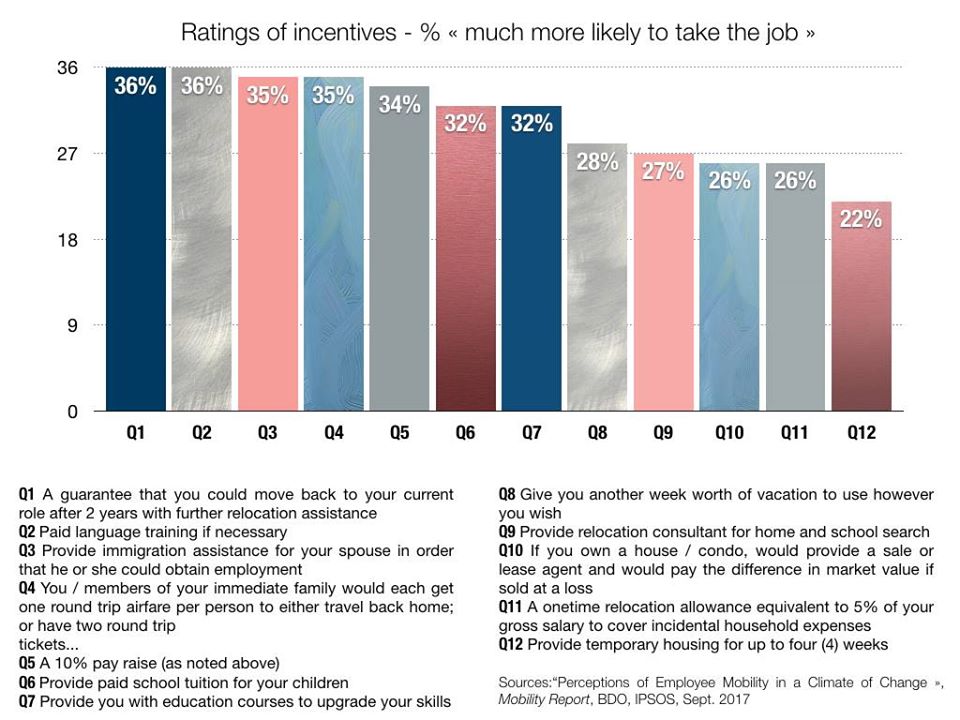While the demand for skilled employees is rising in developing countries, international assignees tend to be more demanding regarding the quality of the employee mobility program companies provide.
Simultaneously, companies need to implement effective mobility management programs. The focus is on assigning the right people and providing them with the right incentives and assurances to make the project the most fruitful for both parties.
Expatriation is defined by a lot of uncertainties
Having met and helped many expats in their moving and thus relocation process, ASI Movers is aware of the problems one faces when undertaking the “expatriate adventure”, and has thus put together a summary of nowadays trends in Global Mobility.*
Which Profile Is More Inclined to Move Abroad

On the one hand, married people or people in the middle of their careers are the least likely to accept a job that would change their life and career plans.
On the other hand, young actives, senior executives/decision makers, and unmarried business owners are the ones keener to undertake the international experience.
The latter see the expat life as an opportunity for starting a new business, giving their career a new impetus, and developing their entrepreneurship spirits. For young actives, working abroad is often seen as a set-up/pay-off mechanism. They might give up a higher salary (the golden package which is becoming rarer and rarer) and the comfort of a stable life in their home country for a more thrilling job, with great of opportunities for evolution.
A person's country of origin also influences one's propensity to accept an expat status. Employees from Latin America, Middle East, and Africa are more likely to temporarily relocate to another country for up to two years with a minimum of 10% increase in pay.
Which Incentives Expats' Employers Provide?

As stated by the 2017 IPSOS report, employers need to be more flexible regarding the incentives they provide.
Employees demand more than just a pay increase. Income only ranks 5th in terms of how impactful a criterion is when deciding on going abroad.

Effectively managing employees' expatriation means - eventually - retaining international, culturally flexible and knowledgeable talents. It appears essential to focus primarily on the repatriation process: going abroad is often only a step in one’s career.
Nevertheless, as the Harvard Business Review found out, many repatriates end up filling temporary assignments once back. The latter compared to the one abroad is a demotion. They lack opportunities to put their foreign experience to work.
How To Effectively Manage Expats?

- Focus on knowledge creation and global leadership development rather than on filling immediate business needs, and rewarding or punishing an employee by making him/her move to a specific place. Expatriation should be part of a defined and global strategy.
- The employees' technical skills should match or exceed their cross-cultural ability. Even though performing very well in their job at home, they will need to adapt to the new country’s culture, communication, management practices, etc.
- The following qualities should characterize them: a drive to communicate, broad-based sociability, cultural flexibility, cosmopolitan orientation; and collaborative negotiation style.
- End expatriate assignments with a deliberate repatriation process.

Managing expatriation has become more complex for corporations as the challenges for employees sent abroad pile up. It requires a thoughtful employee mobility program and effective management to make it work. The common issue often resides in who should oversee the relocation process: The Global Mobility Team? The Generalist HR? An external Party?
The answer is all of them, in cooperation.
Because of all these challenges coming along with relocation, moving should go smoothly for expatriates. That is the reason why ASI Movers has been providing expats stress-free and tailor-made moving services since 2008, never failing to comply with our clients’ needs.
Moving Soon? Request A Free Quote!
This article is based on the following resources:
- “Perceptions of Employee Mobility in a Climate of Change”, Mobility Report, BDO, IPSOS, Sept. 2017
- “The Right Way to Manage Expats”, Harvard Business Review, J. Stewart Black & Hal Gregersen, March-April 1999.
